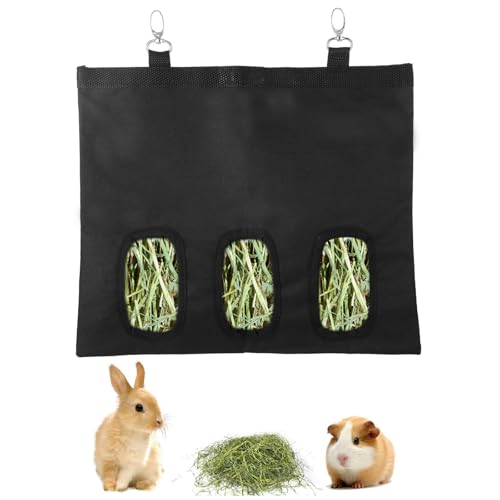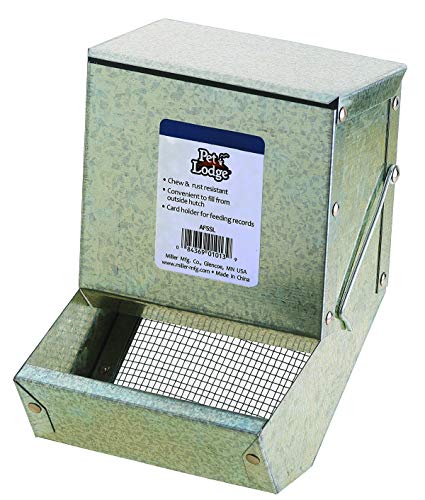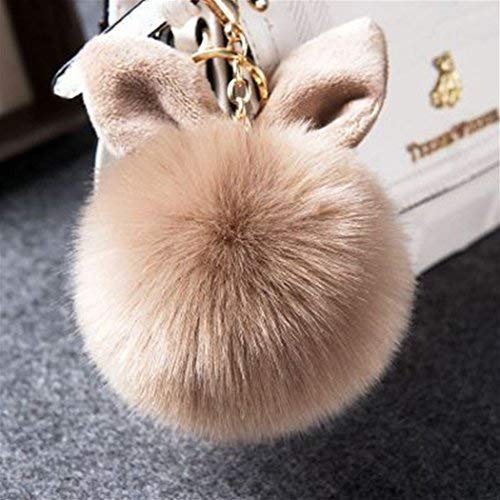dehydrator easiest way.Just read this whole thread and never saw anyone explain how they dry ears, kidneys, liver, heart and lung. Dehydrator? Oven? What temp and how long?
You are using an out of date browser. It may not display this or other websites correctly.
You should upgrade or use an alternative browser.
You should upgrade or use an alternative browser.
First time butchering yesterday. What to do with heads, ears, feet, tails, etc?
- Thread starter KelleyBee
- Start date

Help Support Rabbit Talk Forum:
This site may earn a commission from merchant affiliate
links, including eBay, Amazon, and others.
OKay... one of the most disgusting but laughably thing I have seen was a Schitz-zoo. (YEA, I know spelling wrong) with a head under his jaw and ears sticking up around his. He loved it!Maybe throw the bladder away
Betj
- Joined
- Mar 9, 2022
- Messages
- 251
- Reaction score
- 481
I have some heavy rubber strips recycled from tank treads (50 years ago) that lay in my garden rows. I roll them back and bury meat scraps, fish guts etc under there at least a foot or more deep. Anything else and they get dug up and strewn around by fox, raccoon, weasels..... Things I don't want to attract. If I want to let critters have them they get thrown in the woods far away from the house and my animals.Veggie stuff gets fed to rabbits, quail or buried shallow between plants or composted with bedding.A lot if this has been mentioned before, but there are a couple ideas I haven't seen brought up.
Hide with hair, unless it's very long hair or thick wool can be frozen, dried or baked for dog treats. I'm just not sure about how healthy the very long or wooly hair is for dogs, but short to medium hair is actually good for them. Feet, head and ears for dog treats. Innards frozen for dog food and treats. Innards can also be given to modern velociraptors (chickens, etc.)
You might find a small market with some fishermen who tie their own flies with the hides with hair on. You might also have a hunting dog club close enough to offer some frozen hides for dog field training. Dog trainers, Beagle clubs and similar clubs are all into that. At pet stores you might find some people with carnivore pets that would eagerly buy frozen offal as food. Think of some Monitor Lizards, Gators, Piranhas, etc., and don't leave out the few odd ones who raise types of carrion beetles _ why would anyone raise such insects? I don't know. Then there's my favorite, the Piranhakeet - a most excellent guard bird, but Stumpy says they're not much of a pet ...
You might also think about roasting the leftover bones from cooking and then boiling them for bone broth for your family, just like chicken bone broth. If you're not squeamish you could roast and toss in the heads too.
Composting works. Just keep all meat and dairy at least kind of separated from the vegetation based compost. Earth worms don't enjoy the 'run-off' until it's been very-very well broken down, that's the job for maggots, some beetles and other insects. You'll need to consider the odor too.
KelleyBee
Well-known member
Yes, this thread originated sometime in early 2022. I have butchered many since then! I LOVE the liver and make pate out of it. We can't get enough!best liver i've ever eaten. chickens like the fat and whatever. dry ears for dog treats but you would have to flesh those I guess? i put the heads on my property looking at the neighbor cause I don't like him ha but I suppose coyotes get them quickly.
Well this was a welcome topic to p[op up again. It is late December as I write and am happy to report my black soldier fly experiment is still succeeding. Black Soldier Fly? They are a great members of the decomposition cycle. They are an insect that is not inimical to humans. They out compete other pests like house flies. Whatever you might hesitate to put into the compost you can give to their larvae. BSFL are voracious eaters, devouring scraps in little relevant time, days to hours depending on the population and load.... I buried the entrails and heads in my compost and by this spring they were broken down enough to use along with the rest of my compost for gardening prep. I shake my head when I think about how much nutrients went to the local landfIll over the years because I did not question what I was taught thus did not independently research whether or not it was really not ok to compost animal byproducts. ...
Their sole drawback is they don't survive freezing temperature. So I have to import them every year. A $20 to $30 outlay each spring is easy enough to bear. That get about 500 larvae which will last all through the year as they repopulate every 45 days. So my experiment is how little effort to keep them alive through the winter. If you can harvest eggs, simply keep them in the fridge to hatch out in the spring. But larvae of later instars are what is wanted.
I've got them in a 40 gal tote. I have a grow mat in there keeping a core above freezing. So far they are living and still consuming waste. I've not made effort to insulate the tote. I hope they survive the next couple of months. If not, then next year I will try insulating.
Anyway, thought you might like to add BSFL to the mix. They pre-compost kitchen scraps eliminating scavenger problems.
Good morning. I have livers in the freezer. How do you make your pate. I'm ready for some and have never made it. Someone poached a buck on our property and the neighbor's dog brought it's head up to their door. Antlers cut off. I'm going to bury it in my garden to let the bugs do their work and in the spring going to paint it and hang it at the end of my driveway or somewhere. Winter time stuff.Yes, this thread originated sometime in early 2022. I have butchered many since then! I LOVE the liver and make pate out of it. We can't get enough!

$9.99
The Lodge Cast Iron Cookbook: A Treasury of Timeless, Delicious Recipes
Amazon.com Services LLC

$12.39
$24.00
Top Secret Restaurant Recipes: Creating Kitchen Clones from America's Favorite Restaurant Chains: A Cookbook
Essentialsmerchant

$25.41
$34.95
The Autoimmune Paleo Cookbook: An Allergen-Free Approach to Managing Chronic Illness (US Version)
Amazon.com

$21.22
$27.99
The Fast Metabolism Diet Cookbook: Eat Even More Food and Lose Even More Weight
Amazon.com

$9.99 ($3.33 / Count)
Springtime 3pcs Rabbit Fur Headbands for Women Girls Unique Faux Furry Hair Headband Soft Luxury Headwear Warm Hair Accessories
Chunxia Accessories

$10.01
$19.95
The Paleo Diet Cookbook: More Than 150 Recipes for Paleo Breakfasts, Lunches, Dinners, Snacks, and Beverages
Prime Goods Outlet

$14.71
$29.99
Fit Men Cook: 100+ Meal Prep Recipes for Men and Women―Always #HealthyAF, Never Boring
Amazon.com
KelleyBee
Well-known member
There are tons recipes online for liver pate. Any recipe using chicken liver translation beautifully to rabbit livers. In more recent months, I've been adding the livers to various soups I make, having grown weary of pate!Good morning. I have livers in the freezer. How do you make your pate. I'm ready for some and have never made it. Someone poached a buck on our property and the neighbor's dog brought it's head up to their door. Antlers cut off. I'm going to bury it in my garden to let the bugs do their work and in the spring going to paint it and hang it at the end of my driveway or somewhere. Winter time stuff.
Oh that is a great idea.There are tons recipes online for liver pate. Any recipe using chicken liver translation beautifully to rabbit livers. In more recent months, I've been adding the livers to various soups I make, having grown weary of pate!
Just frying them up for New Year's Day sounds like a good thing. I only have 3
I wish I’d seen this earlier - I have tried to like liver pate and just can’t, but these liver pancakes are THE BOMB. And YES! It sounds completely bizarre. But I am so glad I tried them. They work with beef, calf, chicken and rabbit livers that I’ve tried so far. Nutrient-Dense Carnivore Beef Liver Pancakes - Ash Eats
I'm not normally a pate lover but found this recipe that I love. I think browning the liver in butter makes all the difference in the world.
1/2 pound liver
Butter for frying and finishing
1 medium onion, diced
1 hard boiled egg
1/2 teaspoon salt
Pinch of freshly ground pepper
Wash and dry liver
Saute onion in butter until lightly brown. Remove from pan and reserve.
Fry liver in same pan with more butter, if needed, until cooked through and browned.
Put pan drippings with liver, onions, boiled egg, salt and pepper in a food processor and blend until very smooth, adding more melted butter until desired consistency is achieved.
Taste for seasoning.
1/2 pound liver
Butter for frying and finishing
1 medium onion, diced
1 hard boiled egg
1/2 teaspoon salt
Pinch of freshly ground pepper
Wash and dry liver
Saute onion in butter until lightly brown. Remove from pan and reserve.
Fry liver in same pan with more butter, if needed, until cooked through and browned.
Put pan drippings with liver, onions, boiled egg, salt and pepper in a food processor and blend until very smooth, adding more melted butter until desired consistency is achieved.
Taste for seasoning.
eco2pia
Well-known member
I tried them out the year before last and discovered my SUMMERS are too cool for them to effectively repopulate. They were GREAT, but they wouldn't fly to mate because my air temps are only rarely over 80F, so all I really got was the number I initially purchased. I have considered trying them again once I have a greenhouse that I could potentially get the mating to happen in...Well this was a welcome topic to p[op up again. It is late December as I write and am happy to report my black soldier fly experiment is still succeeding. Black Soldier Fly? They are a great members of the decomposition cycle. They are an insect that is not inimical to humans. They out compete other pests like house flies. Whatever you might hesitate to put into the compost you can give to their larvae. BSFL are voracious eaters, devouring scraps in little relevant time, days to hours depending on the population and load.
Their sole drawback is they don't survive freezing temperature. So I have to import them every year. A $20 to $30 outlay each spring is easy enough to bear. That get about 500 larvae which will last all through the year as they repopulate every 45 days. So my experiment is how little effort to keep them alive through the winter. If you can harvest eggs, simply keep them in the fridge to hatch out in the spring. But larvae of later instars are what is wanted.
I've got them in a 40 gal tote. I have a grow mat in there keeping a core above freezing. So far they are living and still consuming waste. I've not made effort to insulate the tote. I hope they survive the next couple of months. If not, then next year I will try insulating.
Anyway, thought you might like to add BSFL to the mix. They pre-compost kitchen scraps eliminating scavenger problems.
The greenhouse idea is actually fantastic. They are commercially produced that way.I tried them out the year before last and discovered my SUMMERS are too cool for them to effectively repopulate. They were GREAT, but they wouldn't fly to mate because my air temps are only rarely over 80F, so all I really got was the number I initially purchased. I have considered trying them again once I have a greenhouse that I could potentially get the mating to happen in...
























